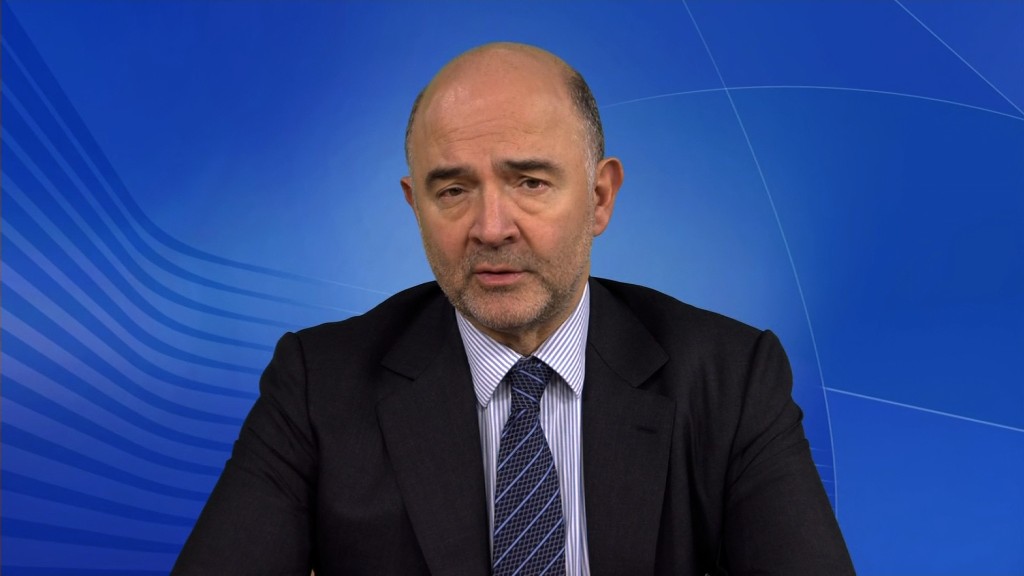
Big companies better start setting aside more money for taxes.
The European Union is cracking down on corporate tax avoidance, closing legal loopholes that allow companies to minimize taxes.
"The days are numbered for companies that avoid tax at expense of others," said Pierre Moscovici, the top EU official responsible for tax.
Countries will now be able to charge corporate taxes even if companies transfer their profits elsewhere.
That's a common practice for multinational companies operating across Europe. They establish headquarters in low tax countries, such as Ireland or Luxembourg, and then funnel most of their European profits through there.
European officials call that "aggressive tax planning" and want to put a stop to it. "Profits should be taxed where they are generated," Moscovici said.
Under the new rules, which will have to be agreed to by all EU countries, companies will be required to disclose more detailed information about their profits and revenues. This information will then be shared between EU members to make sure all taxes are paid.
The European Parliament estimates that up to 70 billion euros ($76 billion) is lost in Europe each year because companies avoid paying taxes. Globally, the amount comes up to $240 billion per year.
Related: Google's new tax deal fails to silence critics
The new set of rules comes as corporate taxes are high on the agenda in Europe.
The European Commission said it might investigate Google's tax deal with Britain. The search engine company has agreed to pay £130 million ($185 million) in the U.K. to cover unpaid taxes since 2005, following an audit by British tax authorities.
But many in Britain are still unhappy about the agreement, calling it a "sweetheart deal." Google (GOOG) will also face questioning at the British parliament.
Google is in hot water in Europe -- reports suggest France and Italy are looking to retrieve hundreds of millions of euros they say Google did not pay in taxes.
But the company is not the only U.S. corporation whose tax bill is growing.
Apple (AAPL) has agreed to pay 318 million euros ($344 million) to Italy for years of unpaid taxes, according to the Italian authorities. Amazon (AMZN) in May agreed to pay more taxes after funneling its sales through Luxembourg's low-tax Grand Duchy.
Starbucks (SBUX) and Fiat Chrysler (FCAM) have also been ordered to repay millions after European officials found the companies benefited from illegal deals with Luxembourg and the Netherlands.
McDonald's (MCD) has been accused of dodging more than €1 billion ($1.12 billion) in taxes between 2009 and 2013.
The new European rules are building on global tax reforms agreed in November. The new rules force countries to share more information about tax to ensure companies pay their fair share.


